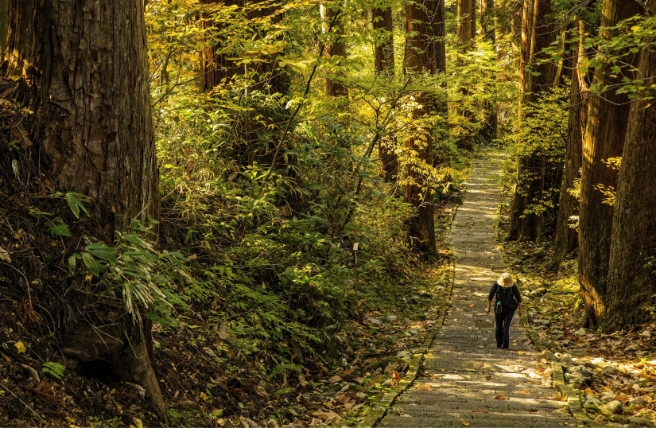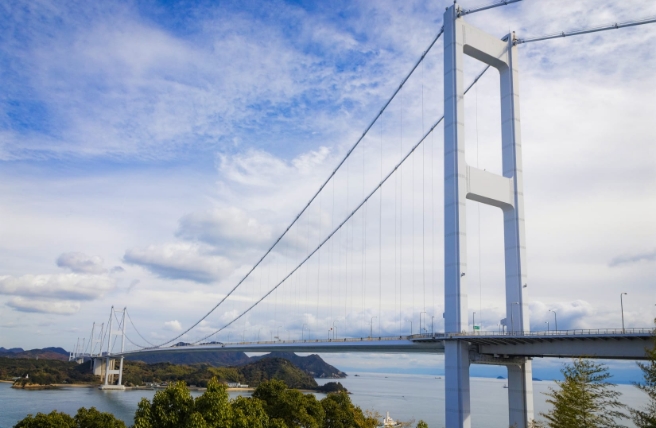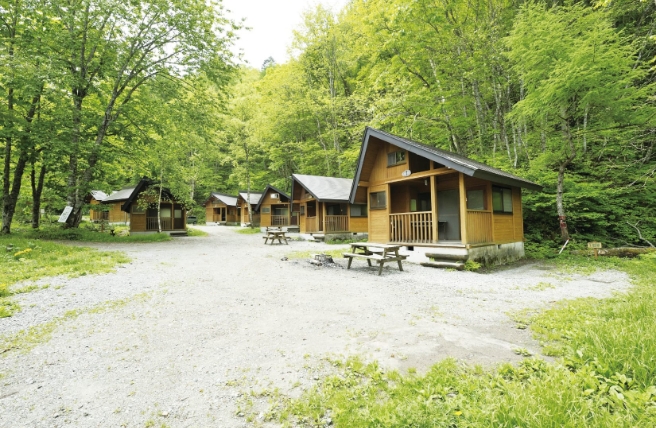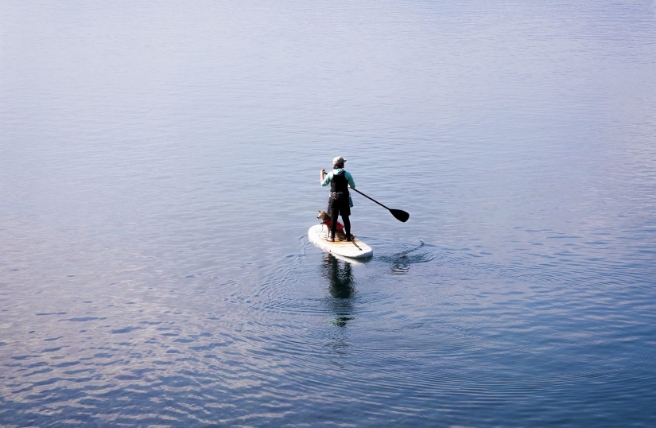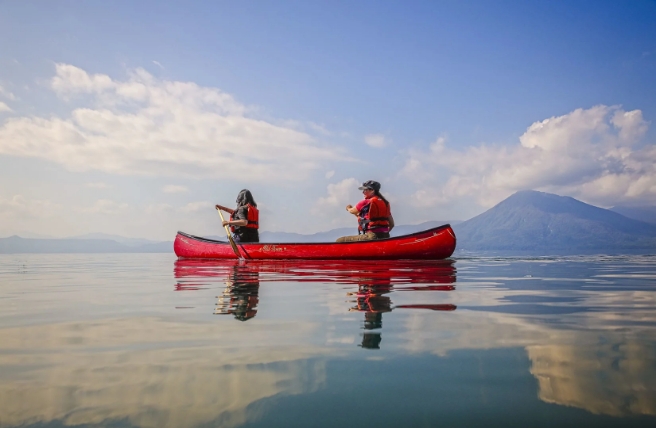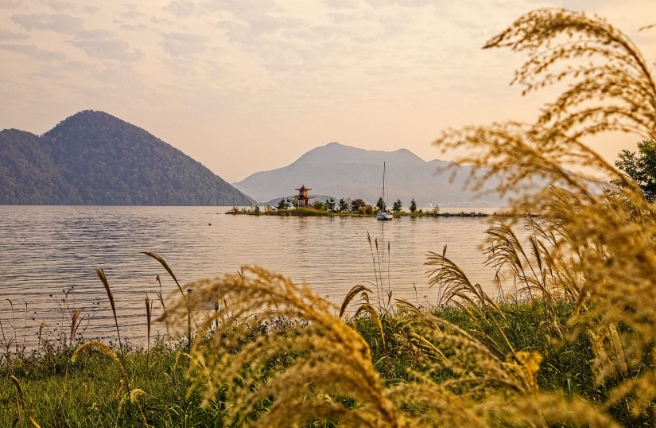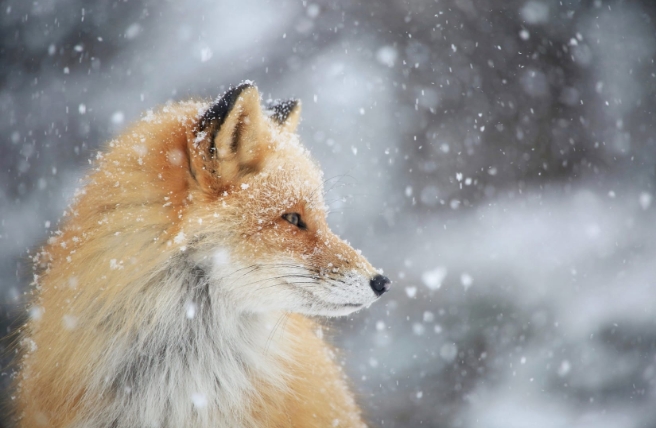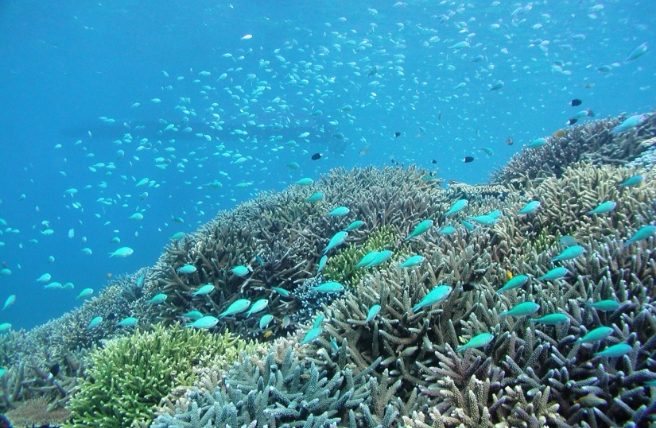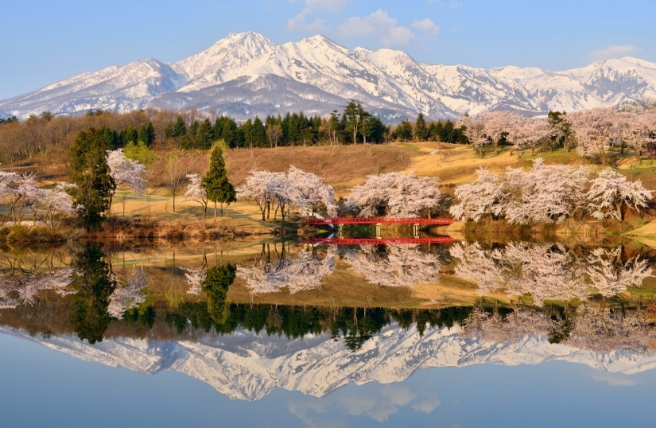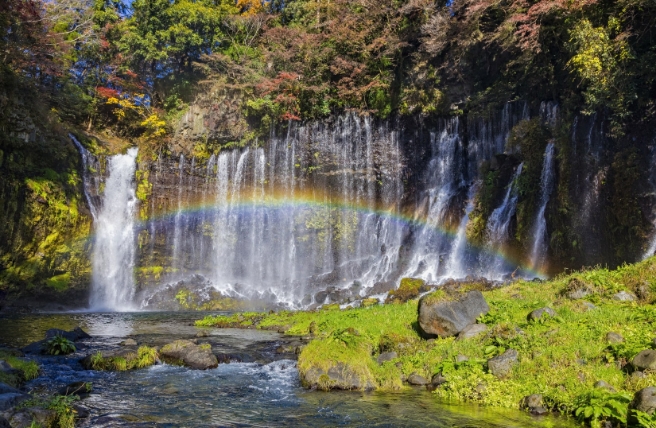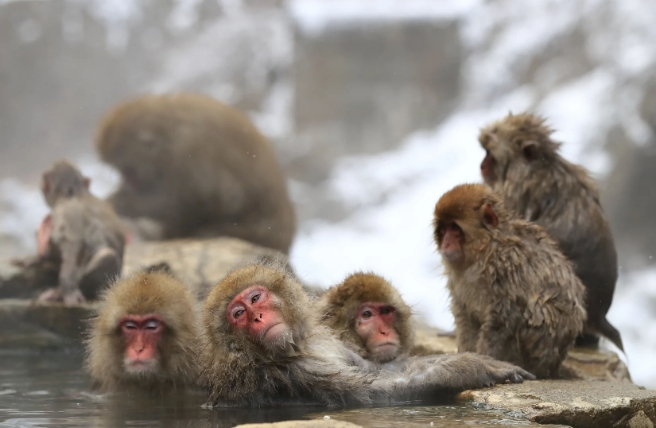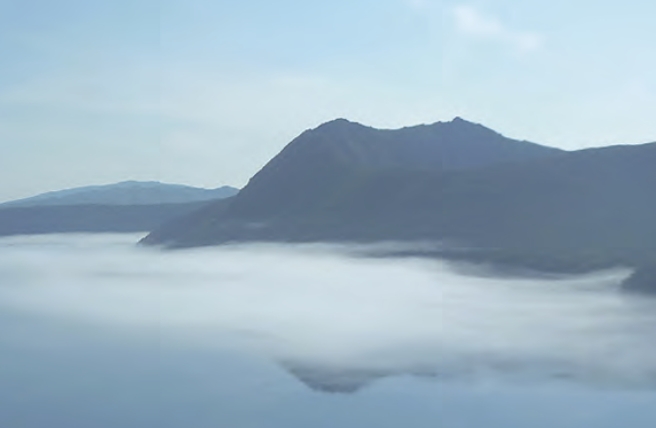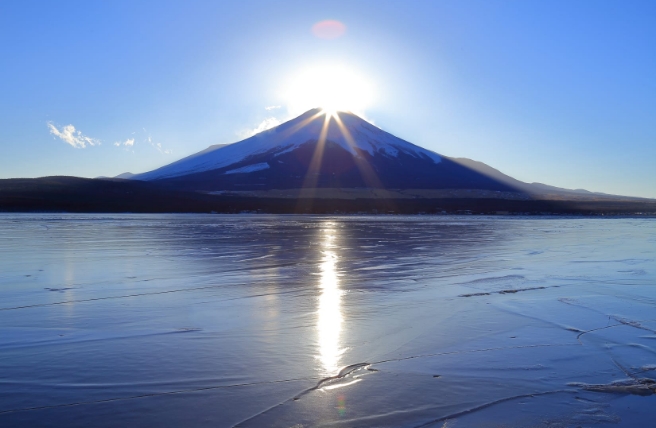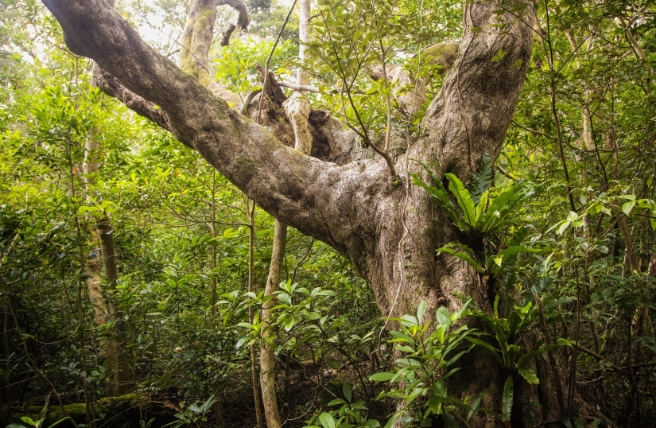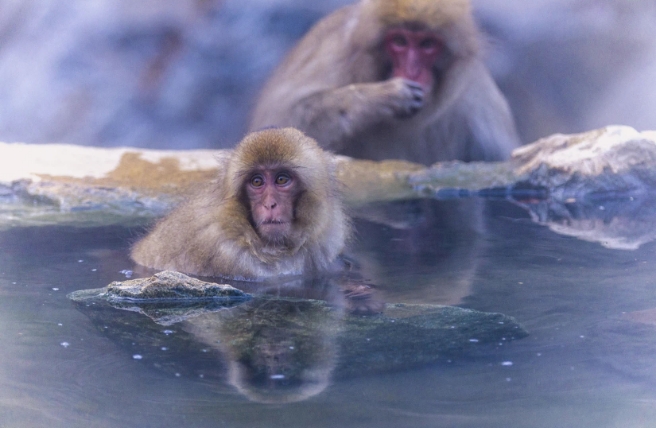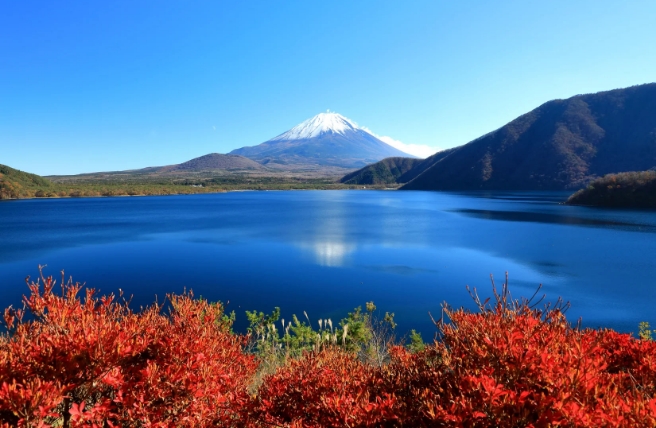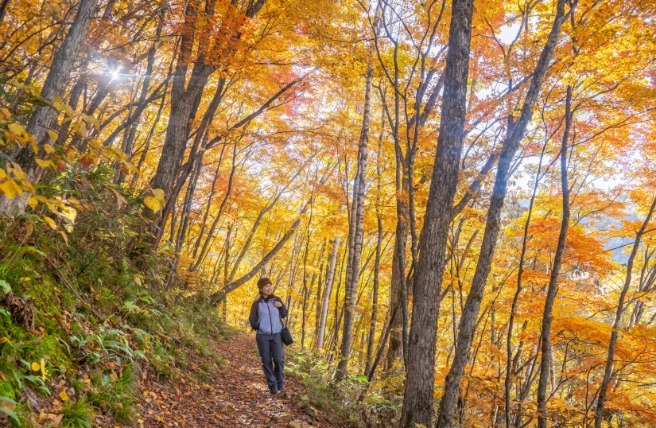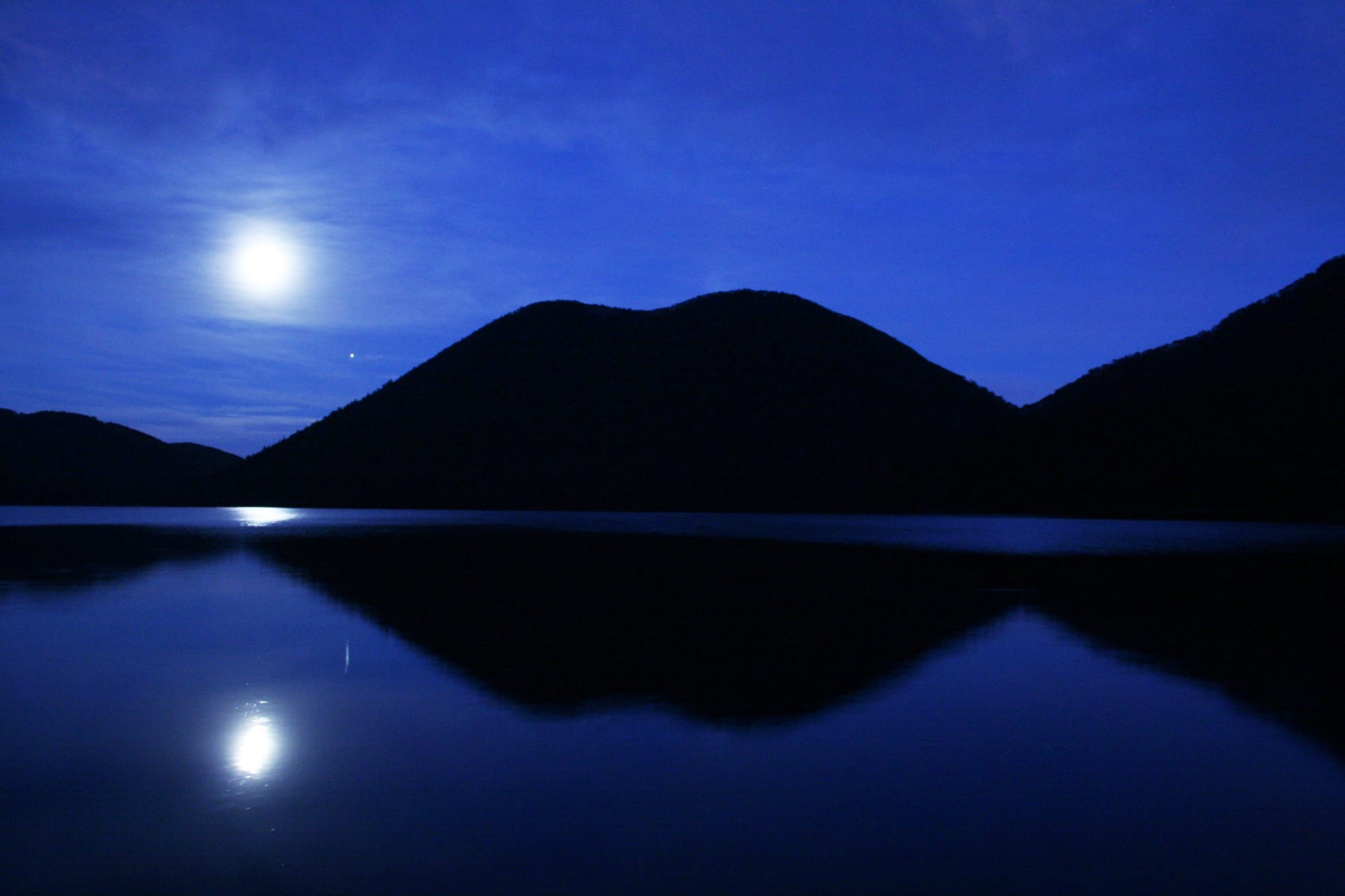
Night tour of Lake Shikaribetsu ©Lake Shikaribetsu Nature Center
International Dark Sky Parks
The International Dark-Sky Association recognizes places that protect their night sky views, so anywhere designated a Dark Sky Place will be an excellent spot for stargazing. In Japan, two national parks contain International Dark Sky Parks: Fuji-Hakone-Izu National Park, near Tokyo, and Iriomote-Ishigaki National Park, in the southern Okinawa archipelago.
Kozushima Island, one of the volcanic isles of Fuji-Hakone-Izu National Park, has become well-known as a dark sky destination. This is not only because the island is far from the bright lights of Japan’s dazzling cities, but also because of the efforts of the residents. In 2020, under the mayor's leadership, over 400 streetlights were replaced with versions that produce less glare, which helped Kozushima gain its Dark Sky Park certification.

A stargazing tour in Kozushima Village in Fuji-Hakone-Izu ©Full Earth
Take advantage of the island's clear skies with a Star Watching Tour from Full Earth, where a guide will explain the stars and planets as you look through a 20-cm aperture astronomical telescope in Kozushima Village. Alternatively, head to one of the stargazing spots popular with the locals, such as Miura Bay Observatory, for a late-night picnic with an unparalleled view of the Milky Way glittering over the ocean.
Given its remote location, Iriomote-Ishigaki National Park is an excellent place to observe the night skies. The park is in Okinawa, a string of subtropical islands in the Pacific, far southwest of Japan’s four main islands. And within Okinawa, the Yaeyama Islands (which include Iriomote and Ishigaki) are the most remote.
Much of the Yaeyama Islands’ population lives in Ishigaki City, which makes it even more impressive that the park has gained the strict International Dark-Sky Association certification. Local residents, tour operators and government agencies have worked together to improve lighting conditions on the islands for night-sky viewing.
All of this work has paid off, making Iriomote-Ishigaki one of Japan’s best astrotourism destinations. Simply head to one of the islands’ many beaches, or anywhere with a clear view of the sky, and you can observe the constellations with the naked eye. If you want a closer look, head to Ishigakijima Astronomical Observatory.
Astronomical observatories
There is no better way to get close to the wonders of the night sky than by visiting an astronomical observatory. The telescopes here are far bigger than any you could set up outside, and often there are events or facilities to teach you more about what you’re seeing. At Ishigakijima Observatory, you can peer through a 105-cm optical-infrared telescope, immerse yourself in the Milky Way at the 4D2U Theater planetarium, and attend stargazing parties. This far south, you can see stars like the Southern Cross, Alpha Centauri and Beta Centauri shining brightly.
Ishigaki's observatory is the farthest south, but there are many astronomical observatories in national parks throughout Japan. Yanbaru Astronomical Observatory is at the northern end of Okinawa's main island in Yanbaru National Park. The observatory is on a mountaintop in a rural location far from city lights. The clear skies here combined with the 350-mm telescope make for awe-inspiring views of the night sky over the mysterious Yanbaru Forest.
The Jododaira Astronomical Observatory in Bandai-Asahi National Park, perched at 1,600 meters (5,250 ft) above sea level, is Japan's highest observatory open to the public. On Wednesday and Saturday (May–Oct) evenings, visitors can peer at the stars and planets through one of the many telescopes, including a 40-cm reflecting and a 15-cm refracting one. Being so high up, the observatory is often above cloud cover, so you can often see a spectacular array of stars here with the naked eye.

A stargazing tour in Kozushima Village in Fuji-Hakone-Izu ©Full Earth
If you’re in Kyushu’s Unzen-Amakusa National Park, make your way to the Unzen Suwanoike Visitor Center to learn all about the park’s steamy volcanic landscape, complex ecosystems, and “satoumi-satoyama” agricultural methods which work in harmony with nature. The visitor center also has its own astronomical observatory, with a 250-mm refracting telescope; come by on weekend evenings to join one of the stargazing parties.
Daisen-Oki National Park, on the Japan Sea coast, has another visitor center with an astronomical observatory. Part of the Shimane Nature Museum of Mount Sanbe “Sahimel” focuses on explaining the formation of Mount Sanbe and the Shimane coastline, while another section is dedicated to astronomy. The observatory is open on Saturdays, during the summer holidays, and Golden Week, as well as for events like eclipses. There is also a planetarium (closed until March 2022) in the visitor center and a small exhibition on astronomy aimed at kids.
Seeing the galaxy through the powerful telescopes of these observatories is always a magical experience. But it's even more spectacular during astronomical events like meteor showers—such as May’s Eta Aquarids, the Perseids in summer, November’s Leonids and the Geminids in December.
Guided star walking and stargazing is also possible in Ashizuri-Uwakai National Park, at the southern tip of Shikoku; on Kozushima in Fuji-Hakone-Izu National Park; and on the Lake Mashu Starlight Tour in Hokkaido’s northeastern Akan-Mashu National Park, where a lookout point gives you 360-degree views.
Guided star watching

Raichosawa Starry Sky Overnight Tour in Chubusangaku National Park
Besides visiting astromical observatories, guided star walking and stargazing without the use of telescopes is also possible. Enjoy guided starwatching excursions in Ashizuri-Uwakai National Park, at the southern tip of Shikoku; on Kozushima in Fuji-Hakone-Izu National Park; and on the Lake Mashu Starlight Tour in Hokkaido’s northeastern Akan-Mashu National Park, where a lookout point gives you 360-degree views.
To really discover the national parks’ secrets, you need to stay the night. The Raichosawa Starry Sky Overnight Tour in central Japan’s Chubusangaku National Park gives you the chance to venture deep into the wilderness of the Northern Japanese Alps, before setting up camp for the night. There’s nothing like watching the shift from sunset to the starry night, immersed in the deep stillness of the mountains.
If you’re not quite up to overnight camping in the peaks, you could try star walking in Chubusangaku instead. This activity combines stargazing with hiking, making for a dynamic but meditative activity. The guided Kamikochi Night Tour starts at picturesque Kappabashi Bridge, before leading you through the wooded valley and to a quiet forest clearing, where on clear nights, you can lie back and enjoy the night sky.
In Daisen-Oki National Park, you can learn how to capture the stunning starry vistas. A professional photographer will teach you about night-time and astronomical photography—and of course, you’ll get to take your favorite image home.
Night tours in the parks
The glittering night skies aren’t the only reason to spend time in Japan’s national parks at night. Explore with an expert guide, and you can see a whole new side to the landscape, and even encounter nocturnal animals.

The sunrise over Lake Toya
In Hokkaido’s Daisetsuzan Park, the Lake Shikaribetsu Night tour gives you a chance to soak up the calm night atmosphere and listen out for the calls of nocturnal animals. In Nikko National Park, let the moon light the way on a guided nighttime hike in Okunikko. The wetlands and forest transform into a celestial wonderland at nightfall, when you might be lucky enough to experience nocturnal animal sightings. The dramatic, volcanic landscape of Unzen-Amakusa National Park has a different feeling at night; visit with a guide to look for glowing lights in the steam vents of Unzen Jigoku (“Unzen Hell”). Another night tour here gives you insight into the area’s myths, taking you to the home of mountain deities in Unzen Nita Pass. At the southern end of Japan, in Yanbaru National Park, you can spot rare animals on a Moonlight Walk Tour through the ancient forest.

Night tour of Unzen Jigoku in Unzen-Amakusa National Park
There are also special events that only take place after dark, like illuminations, projection mapping, and scenography amid nature. In Akan-Mashu National Park, you can step into the ancient tales of the Ainu, Hokkaido’s indigenous people, with Kamuy Lumina: An Enchanted Night Walk at Lake Akan. The illuminated, interactive hiking trail winds through the forest by Lake Akan, combining nature, stunning projection mapping, special lights, and sounds to create an immersive experience that recreates an Ainu saga about coexistence with nature. In Tohoku’s Towada-Hachimantai National Park, the famous landscapes of Oirase Gorge take on a completely different feeling on winter nights. The snow-covered trees and ice falls are gently lit with LED lights, creating a magical scene.
Early morning activities in the parks
If you're staying overnight in one of Japan's national parks, you'll find it well worth the effort to wake up early. The parks offer countless early morning experiences, whether you want to watch the landscape shade into pastel shades as the sun rises over the peaks or capture the quiet atmosphere of the early morning hours for the chance to see more active wildlife. Getting out early in the day also helps you avoid the crowds, letting you focus on the beautiful natural scenery around you.
In Daisetsuzan National Park in Hokkaido, take to a canoe to enjoy the misty morning hours on Lake Shikaribetsu, or catch the first ropeway of the day up Mount Kurodake for an unrivaled view of the Daisetsuzan mountain range. You may even witness a "sea of clouds" from above, depending on the season. From June to October, layers of unbroken clouds often cover Lake Kussharo and Lake Mashu in Akan-Mashu National Park, truly a sight to behold while watching the sunrise.
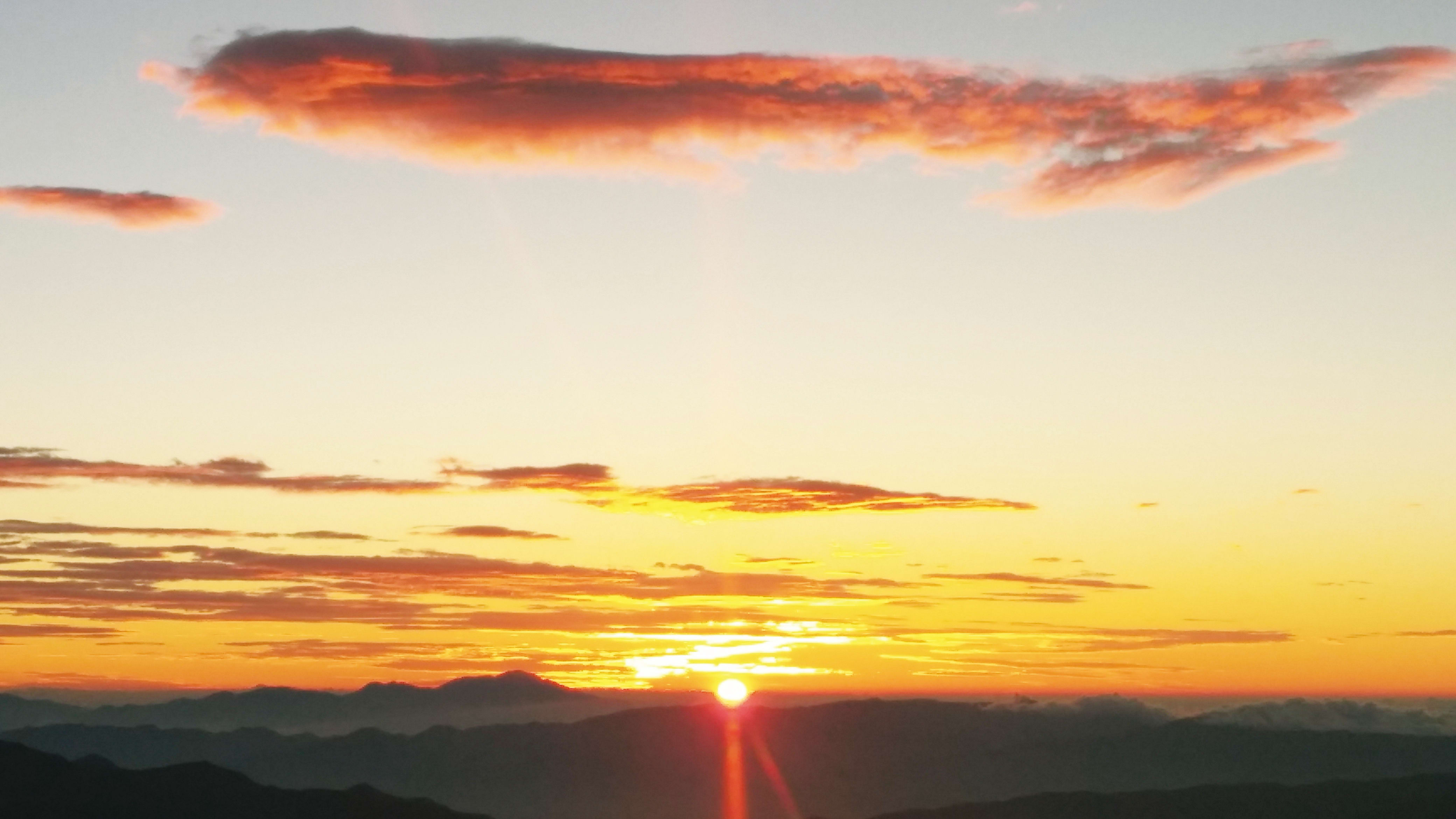
Sunrise from Tatamidaira in Chubusangaku National Park
Take a rejuvenating morning walk through the forest in Shikotsu-Toya National park to spot birds, unique trees and flowers, and Hokkaido wildlife, including squirrels and deer. Try a morning hike in Kamikochi in Chubusangaku National Park to feel the cool morning air and hear birds singing in the forest.
To experience culture in the parks, visitors can participate in morning prayers at a shukubo pilgrim's lodge in Bandai-Asahi National Park or the early morning rituals at Miho Shrine in Daisen Oki National Park.
Morning yoga classes overlooking the ocean are offered in northeast Honshu's Sanriku-Fukko National Park or Kyushu's Aso-Kuju National Park. You can also opt for a hot air balloon ride for spectacular morning vistas over the Aso Caldera.
Of course, the most iconic sunrise of all is in Fuji-Hakone-Izu National Park. During the climbing season, you can make your way to the peak just in time to watch dawn breaking from the highest point in Japan.
Written by Rebecca Hallett
